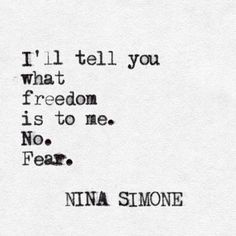|
Sometimes this uneasy feeling bubbles up to my emotional surface. It happened yesterday while I was on the Blue line train from the O'Hare airport into downtown Chicago. I was finishing reading a book as my stop came up, so I started putting it into my backpack. As I did, I realized that the book cover with the word "transgender" in the title was facing outwards, so the person sitting across from me could see it if they happened to be looking in my direction. I don't know if they did or not, or what thoughts crossed their mind if they did, but I felt this tinge of concern. Or maybe it was fear. I can't be sure. Probably fear. But that's not the uneasy feeling I was talking about. I'm talking about realizing the tinge is there, rather than feeling the tinge itself. The realizing was uneasy. It was a reminder that I do harbor fear. But it's also a heavy uneasiness, one burdened by the dual processes of normalizing and invalidating the fear I feel - processes I have so automated within me that the realization of tinges has all but disappeared in the last few years. I don't even get to the tinge before I've already shut it down. And I write this out, I am thinking about how these processes are culturally ubiquitous ones that I have managed to internalize and automate. The normalizing comes from the expectation that we should be afraid, whereas the invalidating comes from being told we're idiots or too sensitive, and thus shouldn't be afraid. Messy, isn't it? We SHOULD be afraid is the norm. The media is saturated by (sometimes) real and (mostly) sensationalized reasons to elicit fear. People we have identities and values in common with are afraid. There is danger all around us - in our neighborhoods and our homes, our water and our food, in the air and in the ground beneath us, at school and at work, when we're on vacation or hospitalized, in domestic and foreign governments, in domestic and foreign organizations... everywhere... at all times... visibly and invisibly. So if it's the norm, our (sometimes medicated) anxieties are also the norm and thus just an ever present state that we either learn to live with and manage, disassociate from, or disassociate from society. We SHOULDN'T be afraid is the conflicting constant that invalidates the fear. If we're offended, we're too sensitive. If we are concerned about how we will be treated or perceived, we just see [racism, sexism, heterosexism, ableism, cissexism, etc.] everywhere. We're not strong enough, courageous enough, smart enough, resilient enough, thick-skinned enough. We're not thinking about other people and their perspectives. We read or watch TV too much. We don't read or watch TV enough. Or we're not reading or watching the right things in the right way. We're not taking care of ourselves or reaching out for help enough. Or we're doing it the wrong way. There's a better way. We can choose to feel other things. I normalize my fears because I've come to expect oppression, systemic and interpersonal, to rule every realm of my world. I invalidate my fears because others are oppressed more - the oppression olympics are deep in this one, only I tend to play to lose. So I medicate my fears, in both healthy and unhealthy ways. I push it deep down my throat and grudgingly swallow it, with its all too familiar grotesque taste always lingering on my tongue. I bite my lips til they bleed and close my mouth so others can't see the scars. And I move on. I don't let myself feel it, I don't own it, I don't speak it, and I just imagine it away. Jiddu Krishnamurti said, "It is no measure of health to be well adjusted to a profoundly sick society." This is a quote I've long held close by - I've even saved it on my phone within a list of ideas for future tattoos and it's on the top right of my blog. It soothes me in the moments when I feel angry or sad about the world we live in. It reminds me that if I'm not feeling whole or happy, it might be about more than just my own inability or unwillingness to feel those things. It suggests to me that feelings of wholeness and happiness may merely be sedated sensations, anesthetized to the realities around that not only effect me, but everyone else. Coming to these realizations about how I internally manage fear has given me a new reading of Krishnamurti's words. That quote has allowed me to be at peace with sadness and anger, but now I know I also need to work them into giving me peace about my fears. I have to resist normalizing them, accepting them as constants, as things I should just be able to live with. AND I have to resist invalidating them, telling myself I have no right to feel fear, that things could be much worse. In fact, by normalizing fear I have by extension invited and pre-emptively accepted feeling more afraid. Meaning, since I normalized how afraid I was before Trump's election, it was also normal that I was afraid after, even as it was elevated, and just as quickly I moved to invalidation. It's so convoluted! So instead, I'm going to work to hear my fears, to take time to sit with them and talk with them. Name and understand them. Be in a much healthier relationship with them. Maybe even speak them out more. Invite others to speak out theirs, validate them, and connect in our shared feelings. Much can and has been said - legitimately so - about the harm we cause when we act from a place of fear, or perhaps more accurately, when others are able to manipulate our fears into actions that benefit them. We see that play out locally and globally. So maybe... just maybe... the issue is not being motivated by our fears, but in our desires to not engage them or feel them, we hand ourselves over to others, seeking quick remedies from those that place the roots of our fears in those we can overpower in an attempt to re-empower ourselves. So maybe... just maybe... if we own our fears, investigate them fully, dig much deeper than we have, we might connect with those that want to heal themselves and others, we might imagine what a fearless world for all might look like, and work towards that. We can reject the normalization and institutionalization of fear. We can be unafraid of living unafraid. I know I want that. Now, I just gotta figure out where to start. Or maybe I just did.
0 Comments
Your comment will be posted after it is approved.
Leave a Reply. |
Un/de-centered
It is no measure of health to be well adjusted to a profoundly sick society - Jiddu Krishnamurti Blogs I Like
Black Girl Dangerous
Conditionally Accepted Crunk Feminist Collective Dances with Dissonance Eric Mata: Words Son of Baldwin TransGriot Trans* Resilience Blog Wilderness Voices Archives
July 2017
Categories
All
|
|
|
© 2015-20 T.J. Jourian. All Rights Reserved.
|



 RSS Feed
RSS Feed